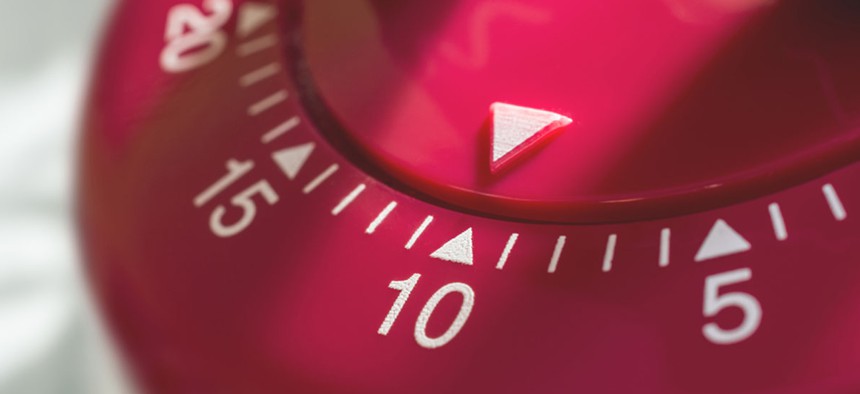
Shutterstock.com
This Simple Productivity Tip Nudges The Easily Distracted — Ever So Gently
"And you won't have to use it forever.
Despite its intense title, Hyperfocus: How to Be More Productive in a World of Distraction (Viking) is not a book written exclusively for hard-charging, elite-level time managers.
Chris Bailey, its author, calls for kindness when you catch your attention slouching on the job. Why be hard on yourself? We’re all swimming in a sea of distractions and it’s not our fault if we get carried off by a current several times in a day.
“Your mind will always wander, so consider how that might present an opportunity to assess how you’re feeling and then to set a path for what to do next,” he writes in the just-published book.
One way he has trained his mind to keep its finite amount of attention on whatever task he has designated for it is through an “awareness chime.” Using any number of apps, you can set up your computer or laptop to chime hourly. That gentle, pleasing sound will nudge you to take a second and ask yourself, “Am I doing the thing I’m supposed to be doing right now?”
Bailey actually suggests posing many other questions, including one about the quality of your attentional flow, distractions you might be able to remove from your environment, and whether you’re ignoring something that is more important than what you’re doing, even if you’re technically on schedule.
“If you’re anything like me, your hourly awareness chime may at first reveal that you’re usually not working on something important or consequential. That’s okay—and even to be expected,” he writes. In time, however, like Bailey, you probably won’t need the chimes to stay on track.
The hourly chime hack is not new. But usually it’s recommended as a mindfulness tool that can help you remember to breathe or sit quietly for a few minutes, or as a reminder to stand and walk around the office, or just stretch.
Several years ago, Daniel Pink, who writes on the science of motivation and time management, featured a chimes tip on his blog as a productivity hack. He quoted Peter Bregman, an advisor to CEOs and the author of 18 Minutes, who described how beeps can help a person snap to attention every hour. At first it seemed counterintuitive, Bregman wrote: “Aren’t interruptions precisely what we’re trying to avoid?”
But the beeps are productive if they take you off of autopilot, Bregman said. “This isn’t all about staying on plan. Sometimes the beep will ring and I’ll realize that, while I’ve strayed from my calendar, whatever it is I’m working on is what I most need to be doing.”
Then he shuffles priorities on his calendar, if necessary, and makes decisions about what is going to be left undone.
As the chime-marked hours pass, you’ll naturally recognize patterns in what you’re caught doing when the bells sound. (And we definitely prefer bells to startling beeps.) It’s one of the benefits to any time-awareness exercise: the heightened attention it brings to what’s stealing your time.






